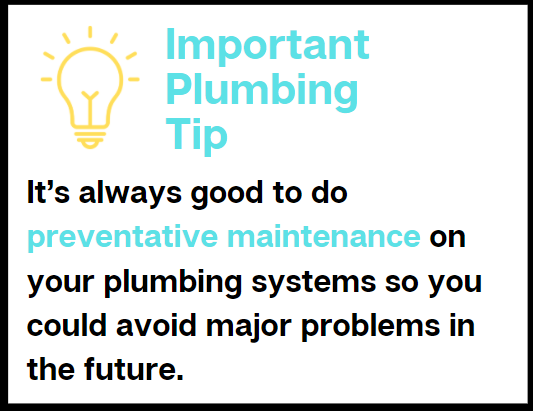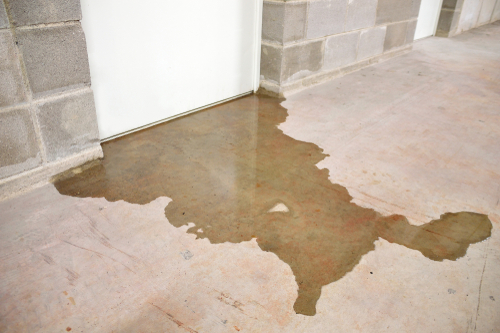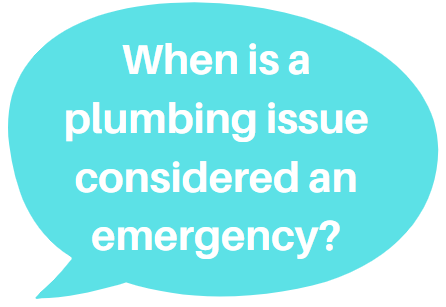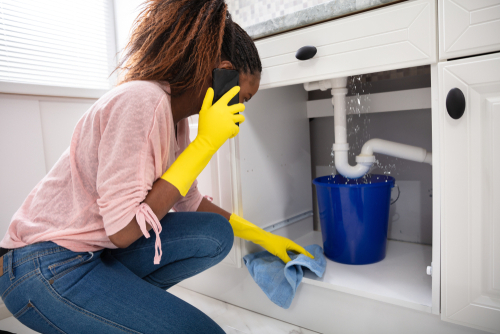7 Emergency Plumbing Scenarios You Should Know
If you are a property owner – whether it’s a residential or commercial establishment – chances are you will encounter emergency plumbing scenarios once in a while – at least once or twice a year.
Minor plumbing problems are inevitable.
However, many property owners tend to overlook the signs and symptoms of a plumbing issue until it develops into an emergency plumbing situation.
In many cases, residential and commercial property owners tend to wait for a plumbing emergency to occur rather than acting preemptively and preventing these problems.
Helpful Tips During a Plumbing Emergency
Keep Calm
Even if you might be feeling anxious, it is essential to try to remain calm. You are not going to make the situation better if you are too worked up or nervous. We understand it is easy to say to stay calm when you’re not in an emergency situation.

However, it is absolutely vital that you make rational decisions, even in dire circumstances. Otherwise, you might end up making rash decisions. These careless and thoughtless actions could turn a minor water leak into a significant and costly plumbing repair expense.
We cannot stress enough the importance of not panicking during a plumbing emergency – or any crisis for that matter.
Remain calm. Call your local emergency plumber right away. Also, we suggest reading on below for the things you can do to alleviate the stressful situation until the emergency plumber arrives.
Switch of the Main Water Supply
This is the first tangible and sensible thing you should do when you have an emergency plumbing situation.
Water should be stopped from flowing through the plumbing lines when you’re dealing with a water leak. Turn off the valves for leaking components and fixtures. However, if you can’t locate the valve, switch the main water supply off.
If you can’t find the main water supply, try looking by the water meter. Typically, the main water supply is positioned close to the water meter.
Turn off All Your Electrical Appliances
Remember to this one item with extreme caution. If the water leaking out comes in contact with any electrical sources in your property, it’s going to be good news. As you know, electricity can course through the water.
When you or anyone in your family, even your pets, touch the water, you could get electrocuted – which is extremely life-threatening. When there’s a water leak in your house, remember to shut down the main electrical switch.
When you remember to do this step, you can help minimize any electrical threat during an emergency plumbing situation.
Remove the Water As Much As You Can
While you’re waiting for the emergency plumber, try to clean as much as you can. Remove all the water that leaked out from wherever it was leaking out. When you wait for a plumber to do the clean-up, you might end up paying more.
On top of that, if you leave the leaking water on the floors or anywhere in your house, you risk damaging your flooring, furniture, walls, your valuable items, and more.
Don’t Attempt the Do-It-Yourself Route
No matter how much you go to Google or watch a Youtube video about fixing your emergency plumbing situation, you are not a professional plumber. The truth is that an online search or watching a quick video on the internet will most likely do you more harm than good.
If it’s a real plumbing emergency, it’s best to leave it to actual professionals. Emergency plumbers are experienced and trained to correct any emergency plumbing issue. If you attempt to fix it on your own, you risk making it a bigger problem. Consequently, you would end up paying more in repair costs.
Call an Emergency Plumber
You need to contact an emergency plumber for all your plumbing emergency needs. It’s always good to have the contact information of your local emergency plumbers ready.
You never know when a plumbing emergency might happen. This helps you in an actual emergency; so you wouldn’t have to rummage through your address book for their contact information.
Professional plumbing companies can send an emergency plumber out to your property in an hour or two – maybe even less – 24 hours a day, seven days a week. Depending on how far your house is from their location, the emergency plumber can get to you quicker than an hour.
When Is a Plumbing Issue an Emergency?
Emergency plumbers are available 24/7, and calling them comes at a premium. Thus, it’s essential to know when you should call on their services and when to wait for a regular plumber to address your issue.

If you’re wondering what’s considered an emergency plumbing situation and what is not, read on.
There is a risk of flooding on your property.
A sewer backup, broken water shut-off valve, burst pipe, and damaged sump pump could cause flooding in your property. Flood or water damage is a major safety concern and could cause significant disruption and damage. These issues should be addressed right away.
You don’t have water.
Not having a water supply could majorly interrupt your household’s daily living.
You have a burst pipe.
Frozen or burst pipes could lead to flooding and no water. And as we mentioned above, those two things are already considered a plumbing emergency.
You have a sewer back-up.
A back-up in your sewage system is a massive health hazard. You should call an emergency plumber as soon as you detected this issue.
Less Pressing Plumbing Problems

If your plumbing problem can wait, you wouldn’t have to shell out a lot of money for the services of an emergency plumber.
That’s the benefit of having the job done during regular business hours.
It’s always good to do preventative maintenance on your plumbing systems so you could avoid major problems in the future.
While no one is truly prepared for any emergency, there are measures you can take to keep your house in order.
What Are the Common Emergency Plumbing Situations?
Clogged Toilet
If your toilet is making noises, not flushing, or is leaking, it’s most likely clogged. The bathroom is one of the most used (and abused) plumbing fixtures in the house. Thus, it’s unavoidable if it runs into some issues.
If you have a clogged toilet in the house, it could most definitely put a damper on your day. While there are some easy fixes you can do to unclog a toilet, it’s still best to have a professional plumber.
Clogged Sinks
A clogged drain is bound to ruin your day. It can make you feel helpless when you’re trying to do the dishes or brush your teeth and the sink won’t drain. There are some easy fixes you can do yourself.
Some of these DIY solutions include pouring boiling water directly down the sink. You can also check the garbage disposal for any clog or if it is overheating.
Slow-draining sinks do not necessarily call for an emergency plumber. However, watch if the water flow completely stops. If this happens, the clog may be more severe than you initially thought.
Clogged Shower Drains
Hair and soap scum buildup can cause your shower drains and bathtub to clog. If your DIY fixes are not doing the job, it’s best to call your emergency plumber right away.
Broken Water Heater
A broken and leaking water heater could cost you more than you realize. It could lead to property damage when water comes into contact with your valuable items. A leaking water heater could also result in a tremendous amount of wasted money on your water heating.
Fortunately, valves of water heaters are easily replaceable. However, if the water heater is rusted all the way to the core, you may need an entirely brand-new unit to replace it.
Leaky Faucets
If you are wondering why your water bill is more expensive than usual, check if you have any leaking faucets in the house. Aside from the annoying dripping sounds, this plumbing issue could grow into a full-blown issue and quickly rack up your monthly water bill.
It could also lead to mold growth and rust development – which are not good. You could try some simple and inexpensive ways to fix a leaky faucet yourself. Before you attempt to do so, make sure that the water supply is switched off.
If you have a faucet that won’t stop leaking, reach out to your local plumber to check it.
Damaged Water Lines
When water lines break, it can cause a major disruption in your life. You’ll be left with low water pressure or no supply of water at all, poor water quality, and water pooling in your yard. Breaks occur for several different reasons. It could either be because of excavation work, aging pipes and materials, ground settling, corrosive soils, growing tree roots, and even earthquakes.
Broken Washing Machine Hoses
A washing machine is one of the sturdiest and most durable appliances you could find in anyone’s home—however, the water hoses that come with them – not so much as sturdy.
If you notice a bulging or cracked water hose behind the washing machine, don’t just ignore it. If you do, mold will start developing, which could then lead to more severe problems.
